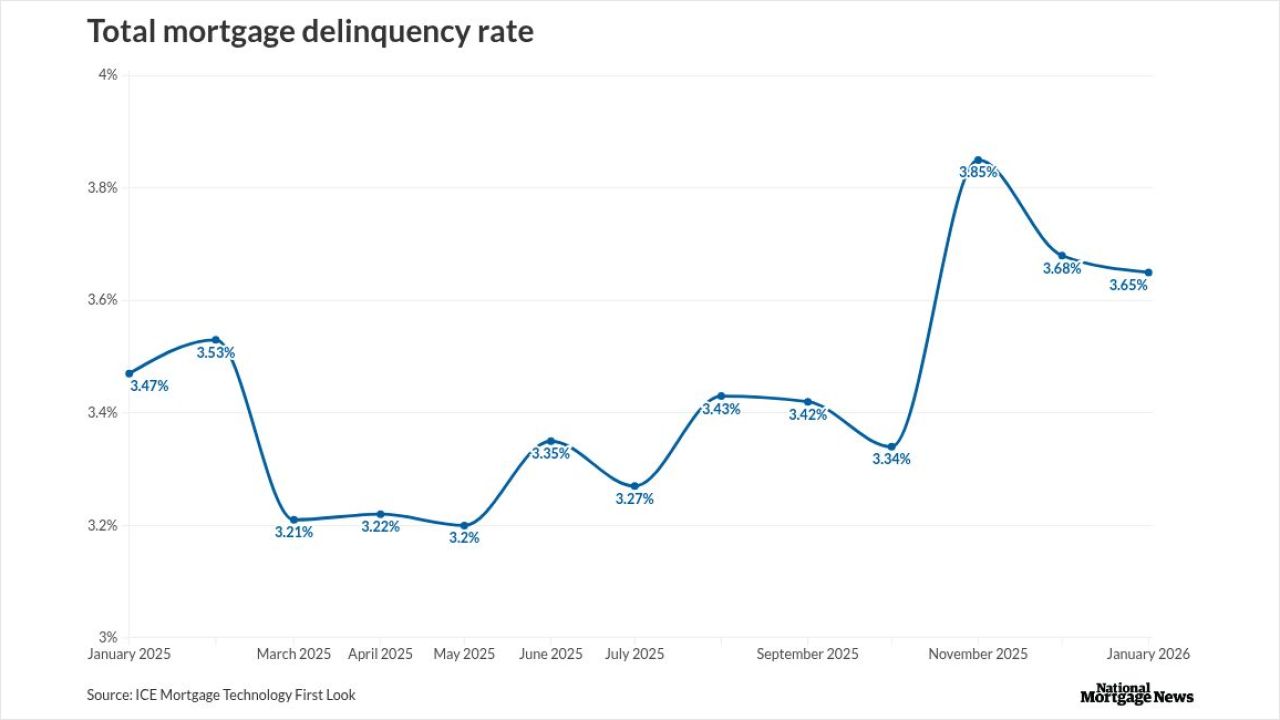
In part two of our series, we discussed
In order to comply with the CFPB's guidance, the full-fledged mini-correspondent must assume additional risk and responsibilities. For instance, when you transition from mortgage broker to mortgage banker, your origination cycle timeline will shift.
As a broker, the timeline begins at application and effectively ends at closing/funding. As a banker, not only do you retain the same timeline, but you are also responsible for a period beyond closing to include post-closing functions and sale of the loan to its investor.
Further, in your capacity as a mortgage banker, you must adopt a more important role in terms of
However, from the mortgage banking perspective, best execution extends past closing and also incorporates intangibles, such as service and
For example, the investor may offer a 30-day lock at 1.5 points, which on a $300,000 loan translates to $4,500. The problem is that your investor's underwriting and post-closing turn times will take one month for each stage. The offer sounds good on the surface, but now your warehouse lender has a problem with the extensive time it will take to close.
As a mortgage banker, you're not only looking at the price to get the loan to the table, you are looking at
Best execution as a mortgage banker incorporates all of these costs into the business decision. To put it colloquially, brokers ask for permission while bankers ask for forgiveness. However, with great power (that is, opportunity) comes great responsibility.
As a mortgage banker, you can produce loans however you want, and you can fund as many loans as you want. The problem is you are now accountable for those decisions. The CFPB seems to be fine with using outsource expertise for the operational expertise to inform quality production, just not outsourcing the accountability.
In mortgage banking, profitability centers on effective risk management. Building a stable, successful mortgage banking business model means you need to look at the entire loan lifecycle and ascertain where your risk lies. For most mortgage bankers, it is primarily in underwriting, compliance and partner/vendor selection. One of the first steps a transitioning broker-banker needs to execute a dispassionate assay of your internal core competencies.
Most small businesses have personnel serving multiple roles within the organization, with the expectation that skills will be picked up "on the fly." The consequences of this strategy can be dire because the kinds of mistakes that will be made are passive mistakes. This means actions weren't taken because "you didn't know what you didn't know."
You need to understand that skill or expertise in one aspect of the mortgage industry doesn't translate into all aspects of the industry. For example, someone amazingly talented at underwriting isn't necessarily suited to run closing or post-closing. Many small bankers really struggle with this because the process is unforgiving and the timing requires many processes are "first" priority. Inventory and assess both skills and bandwidth because one person cannot do it all.
After your assessment, you may decide to put some governance in place regarding the number of investors you’ll have. As a broker, this isn't a concern because you ask permission for everything you do. Once you submit your loan to underwriting, your hands are tied until you get an approval back from underwriting and the lender is willing to fund.
As a mortgage banker, the decision-making process is more permissive. You are funding the loan, and it is yours until you sell it. So, your investor expects you to know the expectations and the consequences. This requires you to be a master of both everything you know and everything the investor expects.
For example, if you decide to move in to U.S. Department of Agriculture or Veterans Administration loans, there are some very niche aspects to originating these. It's your responsibility to have the internal expertise to manufacture these loans correctly and to ensure your investor understands what a compliant version of these loans looks like.
If there is a problem with the loan, or the investor is unsure about the loan, then the investor isn't going to buy the loan, plain and simple. That's no skin off their back, but a rather considerable amount off of yours.
Also, you must have the ability to not only produce a loan, but to troubleshoot it in both the pre-funding and post-closing environments, as well. Regulators and the media are often incredulous when faced with the reality of imperfect loans.
However, loan production is an incredibly complex, intricate process, and no two borrowers or loans are alike. The ability to validate your process and address flaws or errors when discovered is a critical component to building a successful mortgage banking organization.
If you find that you are lacking a skill set or experience internally, you have the option to buy it by hiring qualified personnel, build it through training of existing staff or outsource it to a third-party expert. If you choose to outsource, bear in mind that you are only outsourcing the activity, not the risk. Vendor management guidelines place all responsibility for compliance on the lender so it is up to you to ensure your vendor adheres to all regulatory guidelines and investor requirements. Also, you should ensure the reps and warrants associated with your vendor selection are appropriate and that your vendor can actually meet them.
Regardless of the policy guidance, there is a right way to evolve into a mortgage banker. It starts with being a master of your business model. You must assess, critique, and challenge your assumptions.
Brokers that make the transition to mini-correspondent successfully spend that period retaining earnings, evolving their understanding of the process, figuring out where the risk lies, understanding how to cover their bases, developing longer term correspondent relationships with investors and gaining experience with new product, regions, market, etc. For those that are committed to it, the rewards are plentiful and open the doors to greater opportunities beyond retail origination.
Ruth Lee is executive vice president of Titan Lenders Corp., headquartered in Denver. She can be reached at





